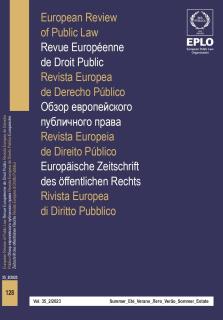
Artificial Moral Rights in the AI Era
Miguel Ortego Ruiz
Managing Partner at ORTEGO LEGAL, S.L.P., Doctor in Law (summa cum laude) Complutense University of Madrid, Professor of Law, Commercial and Business Graduate, International Arbitrator, member of the Chartered Institute of Arbitrators (CIArb) and Certified International Privacy Professional (CIPP/E) by the International Association of Privacy Professionals (IAPP)
The arrival of Artificial Intelligence (AI) to the copyright field has brought ancient debates about the classic dichotomy of moral and economic rights in this arena. Although it is a very premature scenario as AI is still in its dawn, we can no longer postpone the need to address the issue of whether moral rights are still the suitable way of protecting copyright in the AI era or if we should move to more objective and economic points of view (far from the romantic conception of the author). In this sense, contemporary answers to the nature of moral right and whether AI machines can hold moral rights are of the utmost importance nowadays. This process will lead us to a key point: is it possible to dissolve moral rights (or, at least certain moral rights) in economic rights? Is it the best path to provide answers to the deep challenges that the AI brings? What is obvious is that we can no longer look the other way.
L’arrivée de l’intelligence artificielle (IA) dans le domaine des droits d’auteur a remis d’actualité d’anciens débats sur la dichotomie classique entre droits moraux et économiques. Bien qu’il s’agisse d’un scénario très prématuré, l’IA n’en étant qu’à ses débuts, nous ne pouvons plus différer la nécessité de déterminer si les droits moraux sont toujours le moyen approprié de protéger les droits d’auteur à l’ère de l’IA, ou si nous devrions adopter des points de vue plus objectifs et plus économiques (loin de la conception romantique de l’auteur). En ce sens, les réponses contemporaines à la nature du droit moral et à la question de savoir si les machines d’IA peuvent détenir des droits moraux sont de la plus haute importance aujourd’hui. Ce processus nous conduira à un point clé: est-il possible de dissoudre les droits moraux (ou du moins certains droits moraux) dans des droits économiques? Est-ce la meilleure voie pour apporter des réponses aux défis profonds que l’IA apporte? Ce qui est évident, c’est que nous ne pouvons plus regarder ailleurs.





















